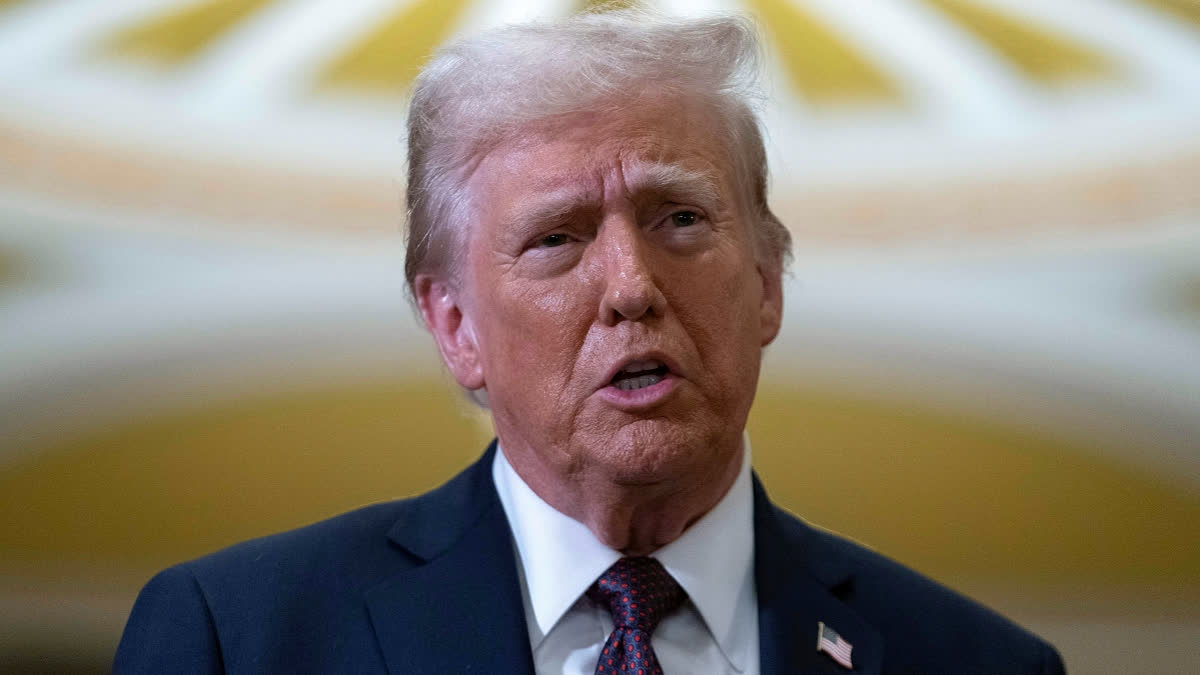Washington:A sharply divided Supreme Court on Thursday rejected President-elect Donald Trump’s final bid to put his New York hush-money case on hold, clearing the way for him to be sentenced for felony crimes days before he returns to the presidency.
The court’s 5-4 order clears the way for Judge Juan M. Merchan to impose a sentence Friday on Trump, who was convicted in what prosecutors called an attempt to cover up a $130,000 hush money payment to porn actor Stormy Daniels. Trump has denied any liaison with Daniels or any wrongdoing.
Chief Justice John Roberts and Justice Amy Coney Barrett joined with the court’s three liberals in rejecting his emergency motion. The majority found his sentencing wouldn't be an insurmountable burden during the presidential transition since Merchan has indicated he won't give Trump jail time, fines or probation.
Trump's attorneys had asked the sentencing be delayed as he appeals the verdict, but the majority of justices found his arguments could be handled as part of the regular appeals process. Justices Clarence Thomas, Samuel Alito, Neil Gorsuch and Brett Kavanaugh would have delayed the sentencing, the order states.
The high court's conservative majority has handed Trump other major victories over the past year, ensuring that states could not kick him off the ballot because of the 2021 attack on the Capitol and giving him immunity from prosecution over some acts he took as president in a ruling that delayed an election-interference case against him.
The justices could also be faced with weighing other parts of the sweeping conservative changes he's promised after he takes office. In the New York case, Trump’s attorneys have argued that evidence used in the Manhattan trial violated last summer’s Supreme Court ruling giving Trump broad immunity from prosecution over acts he took as president.
At the least, they have said, the sentencing should be delayed while their appeals play out to avoid distracting Trump during the White House transition. Prosecutors pushed back, saying there’s no reason for the court to take the “extraordinary step” of intervening in a state case now.
